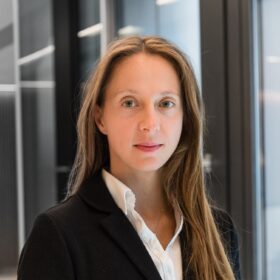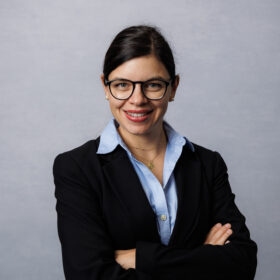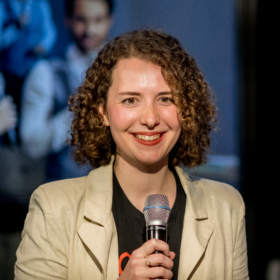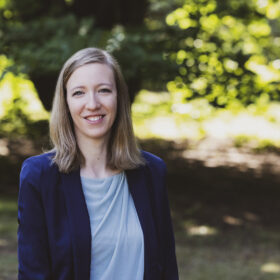Diendorfer, Gertraud / Maier-Rabler, Ursula (Eds.)(2013). Partizipativer Unterricht mit PoliPedia. Ein webgestütztes Tool für kollaboratives Lernen. Demokraiezentrum Wien.
Maier-Rabler, Ursula (forthcoming). Diversity of European Information Cultures. In: Götz, Norbert / Marklund Carl (Eds.) The Promise of Openness: Cultures and Paradoxes.
Maier-Rabler, Ursula / Huber, Stefan / Schmid, Astrid (2012) Neue Medien und Demokratieförderung. Herausforderungen durch Web 2.0 für Politik und junge Bürgerinnen und Bürger. In: IMPULSE – Handbuch für Jugendarbeit, Band 2, Medienpädagogik, 2. Auflage, akzente Salzburg, p. 56 – 61.
Maier-Rabler, Ursula / Huber, Stefan / Schmid, Astrid (2012) Demokratieförderung durch soziale Online-Netzwerke: Politische Partizipation lernen im Web 2.0. In: Forum Politische Bildung (Hrsg) Medien und Politik; Informationen zur Politischen Bildung, Band. 35, Wien, ISBN: 978-3-7065-5242-4, p. 17 - 24.
Maier-Rabler, Ursula / Herdin, Thomas (2011) Going East. Asiatische Universitäten als Kooperationspartner. Das kommunikationswissenschaftliche Master-Exchange-Program mit China. In: Wirtschaft und Management, Wien
Maier-Rabler, Ursula / Huber Stefan (2011) „Open“: the changing relations between citizens, public administration and political authority. In: JeDEM. eJournal of eDemocracy & Open Government, 3(2), p. 48-58.
Maier-Rabler, Ursula / Huber Stefan (2011) Towards a Participatory Society. A Socio-technological Approach to ICT and Participation. In: EDEM 2011: Proceedings of the 5th Conference on Electronic Democracy 2011. Wien: Österreichische Computergesellschaft (ÖCG), p. 135 – 146.
Maier-Rabler, Ursula / Huber Stefan (2011) Online & Offline – Challenges for Citizenship Education, Input at the NECE-Workshop Perspectives of Web 2.0 for Citizenship Education in Europe, April 8, 2011, Brno, Czech Republic. Download from the website of the Bundeszentrale für Politische Bildung, p. 1 – 4.
Maier-Rabler, Ursula / Huber Stefan (2010) Sustainable E-Participation through participatory experiences in education. In: JeDEM. eJournal of eDemocracy & Open Government, 2(2), p. 131-144.
Maier-Rabler, Ursula (2010) E-Policies and the Diversity of European Information Cultures. ESA Research Network Sociology of Culture Midterm Conference: Culture and the Making of Worlds, October 2010. Available at SSRN: http://ssrn.com/abstract=1692198
Maier-Rabler, Ursula and Huber, Stefan (2010). Supporting Societal Participation of Young People by Social Media. ESA Research Network Sociology of Culture Midterm Conference: Culture and the Making of Worlds, October 2010. Available at SSRN: http://ssrn.com/abstract=1692201
Maier-Rabler, Ursula / Huber Stefan (2010). Prerequisites for Sustainable eParticipation. JeDEM - eJournal of eDemocracy and Open Government, Vol 2, No 2 (2010). Available at: http://www.jedem.org/article/view/37
Diendorfer, Gertraud; Maier-Rabler, Ursula; Parycek (Hg.) (2010). Internetkompetenz von SchülerInnen. Aktivitätstypen, Themeninteressen und Rechercheverhalten in der 8. Schulstufe in Österreich, Forschungsbericht; Wien, Salzburg, Krems, p. 212
Maier-Rabler, Ursula / Neumayer, Christina (2009). eParticipation for Political Education: Challenges and Opportunities. In: Macintosh, Ann / Tambouris, Efthimios (Eds.). Electronic Participation. Lecture Notes in Computer Science. Springer Berlin / Heidelberg. Online Publication (http://dx.doi.org/10.1007/978-3-642-03781-8_6)
Maier-Rabler, Ursula (2008). ePolicies in Europe. A Human-Centric and Culturally Biased Approach. In: Ludes, Peter (Ed.). Convergence and Fragmentation: Media Technology and the Information Society. Bristol: Intellect Books. pp. 47-66.
Maier-Rabler, Ursula (2007). ePartizipation – Jugend aktiv. Ergebnisbericht. In: Prosser, Alexander/Parycek, Peter (Eds). Elektronische Demokratie in Österreich. Conference proceedings of EDem2007, Vienna. pp. 27-42.
Herdin, Thomas/Hofkirchner, Wolfgang/Maier-Rabler, Ursula (2007). Culture and Technology. A Mutual-Shaping-Approach. In: Information Technology Ethics: Cultural Perspectives. Hershey, PA, London, Melbourne, Singapore: Idea Group Reference. pp. 47-66.
Maier-Rabler, Ursula (2006). Reconceptualizing e-Policy. Cultural Aspects and Digital Divide in Europe. In: Sarikakis, Katharine/Thussu, Daya (Eds.). Ideology of the Internet. Cresskill, NJ: Hampton Press. pp. 195-212.
Ursula Maier-Rabler und Christiana Hartwig. (2006) e-Partizipation. Eine aktive Jugend durch neue Medien? Das aktive IKT-Nutzerverhalten von Salzburger Jugendlichen – mit besonderer Berücksichtigung von (politisch) partizipativen Formen von Internet und mobiler technischer Kommunikation“
eParticipation: Activating Youth Through New Media? The Current ICT Usage of Youth in Salzburg – Emphasizing the Forms of Political Participation Through the Internet and Mobile Communication
Fuchs, Christian/Bernhaupt, Regina/Hartwig, Christiana/Kramer, Mark A./ Maier-Rabler, Ursula (October 2006) Broadening eParticipation: Rethinking ICTs and Participation. Salzburg ICT&S Research Paper No 2 ISSN 1990-8563 http://icts.sbg.ac.at/media/pdf/pdf1131.pdf
Wolfgang Hofkirchner / Ursula Maier-Rabler (2004). The Ethos of the Great Bifurcation. In: International Journal of Information Ethics. Vol.2, (11/2004) (http://container.zkm.de/ijie/ijie/no002/ijie_002_17_hofkirchner.pdf)
Die neuen Informations- und Kommunikationstechnologien. In. Gabriele Siegert (Hg.)(2002). Medienökonomie in der Kommunikationswissenschaft. Bedeutung, Grundfragen und Entwicklun
Entwicklungsperspektiven. Münster, Hamburg, London: LIT Verlag, S. 215 – 222
The New Information and Communication Technologies: Media Economics in Communication Science. Definitions, Basic questions and Developmental Perspectives
Cultural Aspects and Digital Divide in Europe. In: Medien Journal, 3/2002, S. 14-32.
Redaktion (gemeinsam mit Roman Winkler / Edited with Roman Winkler) des Schwerpunktheftes „Innovative Approaches to ICT“, Medien Journal, 3/2002
Ursula Maier-Rabler, Michael Latzer (Hg.) Kommunikationskulturen zwischen Kontinuität und Wandel. Tagungsband zum Kongress der Österreichischen Gesellschaft für Kommunikationswissenschaft und der Deutschen Gesellschaft für Publizistik- und Kommunikationswissenschaft 2000. UVK Verlag Konstanz, 2001, 519 S.
Communication Cultures Between Continuity and Change. Conference Volume for the Congress of the Austrian Society for Communication Science and the German Society for Journalism and Communication Science.
e-kultur in ländlichen Regionen Österreichs. In: L@nd. 29 Positionen zu Kunst und Kultur im Land Salzburg. Hg. vom Salzburger Landeskulturbeirat - Fachbeirat Kulturinitiativen Salzburg Land. Salzburg, 2000, S. 52-55.
e-culture in the rural regions of Austria. L@nd. 29 Positionen zu Kunst und Kultur im Land Salzburg. Hg. vom Salzburger Landeskulturbeirat - Fachbeirat Kulturinitiativen Salzburg Land. Salzburg, 2000, S. 52-55.
Die Zukunft der Erwachsenenbildung. In: Perspektiven. Weiterbildung in Gemeinde und Regione. Hg. vonSalzburger Bildungswerk und Förderungsstelle des Bundes für Erwachsenenbildung für Salzburg. 2000, S. 118-126.
The Future of Adult Education
Michael Latzer, Ursula Maier-Rabler, Gabriele Siegert und Thomas Steinmaurer (Hg.): Die Zukunft der Kommunikation. Phänomene und Trends in der Informationsgesellschaft. Tagungsband zu den 8. Kommunikationswissenschaftlichen Tagen 1998. Innsbruck-Wien: StudienVerlag, 1999
The future of Communication. Phenomena and Trends in the Information Society. Conference Volume of the 8th. Communication Science Days, 1998.
Konzeption und Redaktion des Medien Journal Schwerpunktheftes "Wissensgesellschaft". Medien Journal 3/1999.
Maier-Rabler, Ursula (1998). (Ver)Lernen wir eine Kulturtechnik? In: Schule heute. 4/1998. S. 3-6
Strukturwandel der Wissensproduktion. Das Ende der Wissensmonopole? In: TRANS Nr.6/1998. Internet-Zeitschrift für Kulturwissenschaften.
Neue Räumlichkeit und digitale Netzwerke. In: Michael Latzer, Ursula Maier-Rabler, Gabriele Siegert und Thomas Steinmaurer (Hg.): Die Zukunft der Kommunikation. Phänomene und Trends in der Informationsgesellschaft. Tagungsband zu den 8. Kommunikationswissenschaftlichen Tagen 1998. Innsbruck-Wien: StudienVerlag, S. 199 - 202
Die neuen Informations- und Kommunikationstechnologien. In: Mayer-Schönberger, Viktor/Schneider-Manns-Au, Markus (Hg.): Der Jurist am Info-Highway. Wien: Orac Verlag, 1997, S. 28-37.
(Gemeinsam mit Erich Sutterlütti): Hypertextualität als neues Informationsprinzip. Über die Auswirkungen der neuen Informations- und Kommunikationstechnologien auf zukünftige Wissensstrukturen. In: Renger, R. / Siegert, G. (Hg.): Kommunikationswelten. Innsbruck: Studienverlag. 1997. S. 243 - 266.
(Together with Erich Sutterluetti)
Austrian information highway initiatives in the stage of disillusionment. In: Telematics & Informatics, Vol. 13, No. 2/3, pp.111-121, 1996.
Vom Datenhighway zur Wissensinfrastruktur. In: Medienimpulse. Beiträge zur Medienpädagogik. 16/1996, S. 42-50.
(Gemeinsam mit Marie-Luise Angerer und Roman Hummel) Redaktion des
Schwerpunktheftes "Time After Media", Medien Journal 1/1996.
(Gemeinsam mit Erich Sutterlütti): Kommunikationsstatistik im Lichte der Neuen Informations- und Kommunikationstechnologien: In: Klaus-Dieter Altmeppen (Hrsg.): Ökonomie der Medien und des Mediensystems. Grundlagen, Ergebnisse und Perspektiven medienökonomischer Forschung. Opladen: Westdeutscher Verlag, 1996, S. 121-146.
(Together with Erich Sutterluetti) Communication Statistics Regarding New Information and Communication Technologies. In: Klaus Dieter Altmeppen (Hrsg.): Economics of the media and the medium system.Primary results and perspectives of the Media-economy Research. Opladen: West German publishing house, 1996, S. 121-146.
Krise der Kontrolle. In: Forum Wissenschaft. 1/1996, S. 11-15
The Crisis of Control. In: Forum Wissenschaft. 1/1996, S. 11-15
(Gemeinsam mit Erich Sutterlütti): Interaktive Informationsdesigns. In: Medien Journal 1/96.
(Together with Erich Sutterluetti) Interactive Information-design. In: Medien Journal 1/96.
Die politisch-kulturellen Dimensionen der neuen Informations- und Kommunikationstechnologien. In: ÖIBF-Info, 4/1995.
The Political and Cultural Dimensions New Information and Communication Technologies In: ÖIBF-Info, 4/1995.
Die neuen Informations- und Kommunikationstechnologien als gesellschaftspolitische Herausforderung. In: Informatik Forum, Bd.9/Nr.4, Dezember 1995, S. 157-168.
New Information and Communication Technologies as a Geopolitical Challenge In: Informatics Forum, Bd.9/Nr.4, December 1995, S. 157-168.
The Information Gap: Crisis or Opportunity? Participation in a Round-Table-Discussion. In: The Urban Age, February, 1995, S. 18 - 19.
Redaktion des Schwerpunktheftes "Kommunikationsnetzwerk Stadt", Medien Journal 1/1995.
Die Stadt als Medium. Annäherungen an eine kommunikationswissenschaftliche Theorie der Stadtentwicklung im Informationszeitalter. In: Medien Journal 1/1995, S. 3 - 16.
The city as medium. Approximations to a Communication-Science Theory of the Urban Development in the Information Age. In: Media journal 1/1995, S. 3 - 16.
(Gemeinsam mit Erich Sutterlütti): Pressestatistik im internationalen Vergleich: Medien Journal 2/1994, S. 69-85
(Together with Erich Sutterluetti): Press statistics in an international comparison: Media journal 2/1994, S. 69-85
Space and Communication. The Spatiality of Communication in the Context of the New Information and Communication Technologies. CAST Working File Series, Ohio State University, 1994. pp. 1- 38.
Kommunikationsstatistik für Österreich. In: Institut für Publizistik- und Kommunikationswissenschaft der Universität Salzburg (Hg.): Medienbericht 4, Wien: Verlag Buchkultur, 1993, S. 39 - 56.
Communication Statistics in Austria. In: Institut für Publizistik- und Kommunikationswissenschaft der Universität Salzburg (Hg.): Medienbericht 4, Wien: Verlag Buchkultur, 1993, S. 39 - 56.
In Sense of Space. Überlegungen zur Operationalisierung des Raumbegriffs für die Kommunikationswissenschaft. In: Hömberg,W./Schmolke,M.(Hg.): Zeit, Raum, Kommunikation. München: Ölschläger, 1992, S. 357 - 370
In Sense of Space. Reflections on the Considerations to the Concept Communication Science. In: Hömberg,W./Schmolke,M.(Hg.): Zeit, Raum, Kommunikation. München: Ölschläger, 1992, S. 357 - 370




















